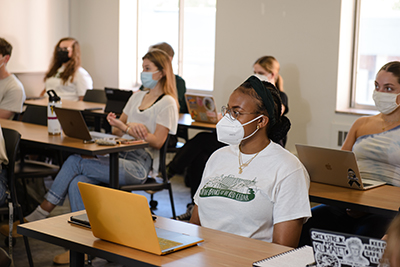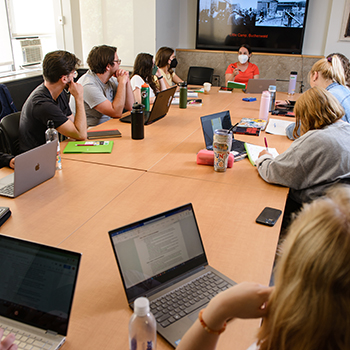MSU learning communities receive top ranking
September 26, 2022 - Beth Brauer
The following story contains repurposed content from MSUToday.
For the fourth year in a row, Michigan State University learning communities are ranked No. 4 overall and No. 1 among public institutions by U.S. News & World Report.
Learning communities provide safe and supportive spaces for complex conversations about curriculum and pedagogy. The university offers several living-learning communities, including three degree-granting residential colleges: James Madison College (JMC), Lyman Briggs College (LBC) and the Residential College in the Arts and Humanities (RCAH).

"The benefits of learning communities cannot be understated. For the last 30 years, higher education leaders consistently report the correlation between learning communities and strong career outcomes and overall student achievement," said Cameron G. Thies, dean of James Madison College and MSU Foundation Professor.
In Madison, average class sizes range from 18-24 students. Having the benefits of a small liberal arts college and the resources of a research university are some of the most cited reasons for choosing JMC. The opportunity to connect with faculty and staff regularly aids in students’ learning about research assistantships, career programming and networking events with alumni.

“It is rewarding to see that Michigan State University’s learning communities maintained their No. 1 ranking among four-year public universities, and No. 4 ranking overall,” said MSU Provost Teresa K. Woodruff, Ph.D. “MSU’s three residential colleges and additional living-learning communities support student success through experiential learning and help foster a sense of inclusion and belonging across campus.”

